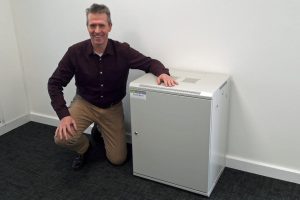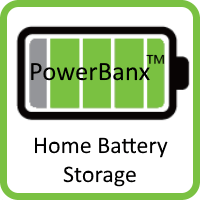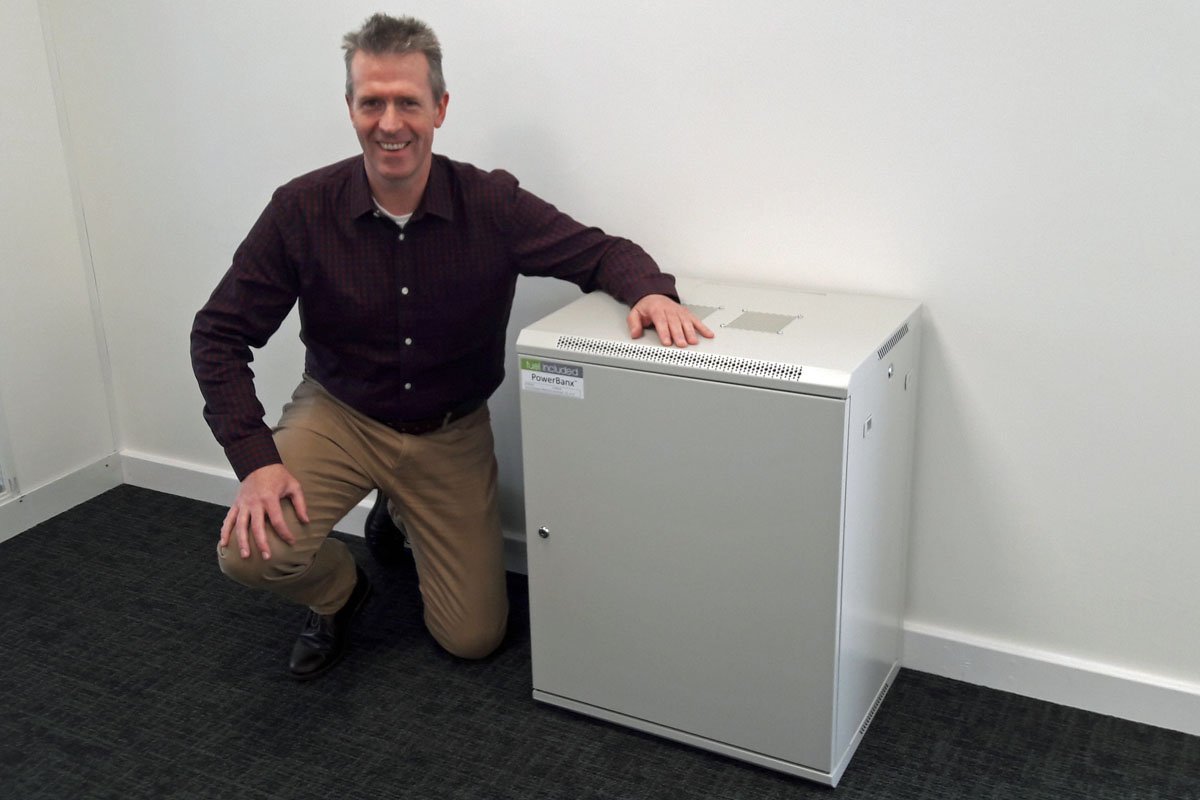In Southern and Eastern parts of the U.S., late summer and fall not only signals the start of college football; it also marks the beginning of storm season.
Homeowners in these regions are no strangers to preparing for storms, from trimming tree branches that are too close to windows to storing water and food in case of an emergency.
Adding energy storage capabilities to your solar home offers another way to prepare for storm-related power outages. The right storage system can keep your appliances running if the grid is down. Solar storage solutions provide peace-of-mind that your family and home can have power, no matter what’s happening outside.

Tanjent’s PowerBanx X battery storage, in pale grey enclosure (Image: Tanjent)
Energy storage on the rise
If you are considering adding energy storage to your PV system, you’re in good company. With the prospect of regular storms and increased outages, homeowners and businesses alike are considering how to add more resiliency to their power sources.
Consider that residential and commercial energy storage is on the upswing. GTM Research reported that solar-related energy storage accounted for about 4 percent of distributed PV systems in 2018, and they forecast that will reach 23 percent by 2023, according to energy.gov.
Utilities, too, are exploring how to maintain service during storms and reduce outages. Many are exploring a combination of smart-grid technology, additional energy storage and moving transmission lines underground. For the homeowner, of course, the latter is usually cost-prohibitive and not something you can do on your own. A solar-plus-storage setup allows you to create a source of backup power in a way that makes sense for your home and budget.
What happens to PV systems during a storm
While installing a home solar system ensures that your home gleans its energy from the sun and not your public utility, you’re not able to use your solar energy during an outage without some sort of storage system. That’s because your photovoltaic (PV) system requires an inverter to convert the energy collected from the solar panels so that it’s usable by your appliances.
In most cases, your inverter will shut down if there’s a widespread grid outage. This is primarily to keep your home from putting power back onto the grid while utility workers may be working on it. There are some specialized inverters that will keep transferring power to your home during an outage. Even so, they only work during the day, when the solar panels are collecting energy.
Read more: Panasonic
Get The Right PowerBanx For Your Home
If you would like to know more about the PowerBanx range of home battery systems, and get a free instant quote, please complete our online form:





